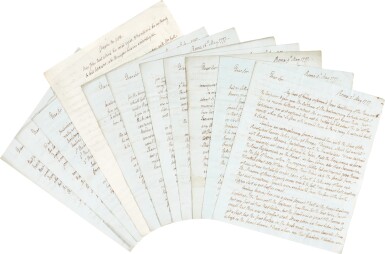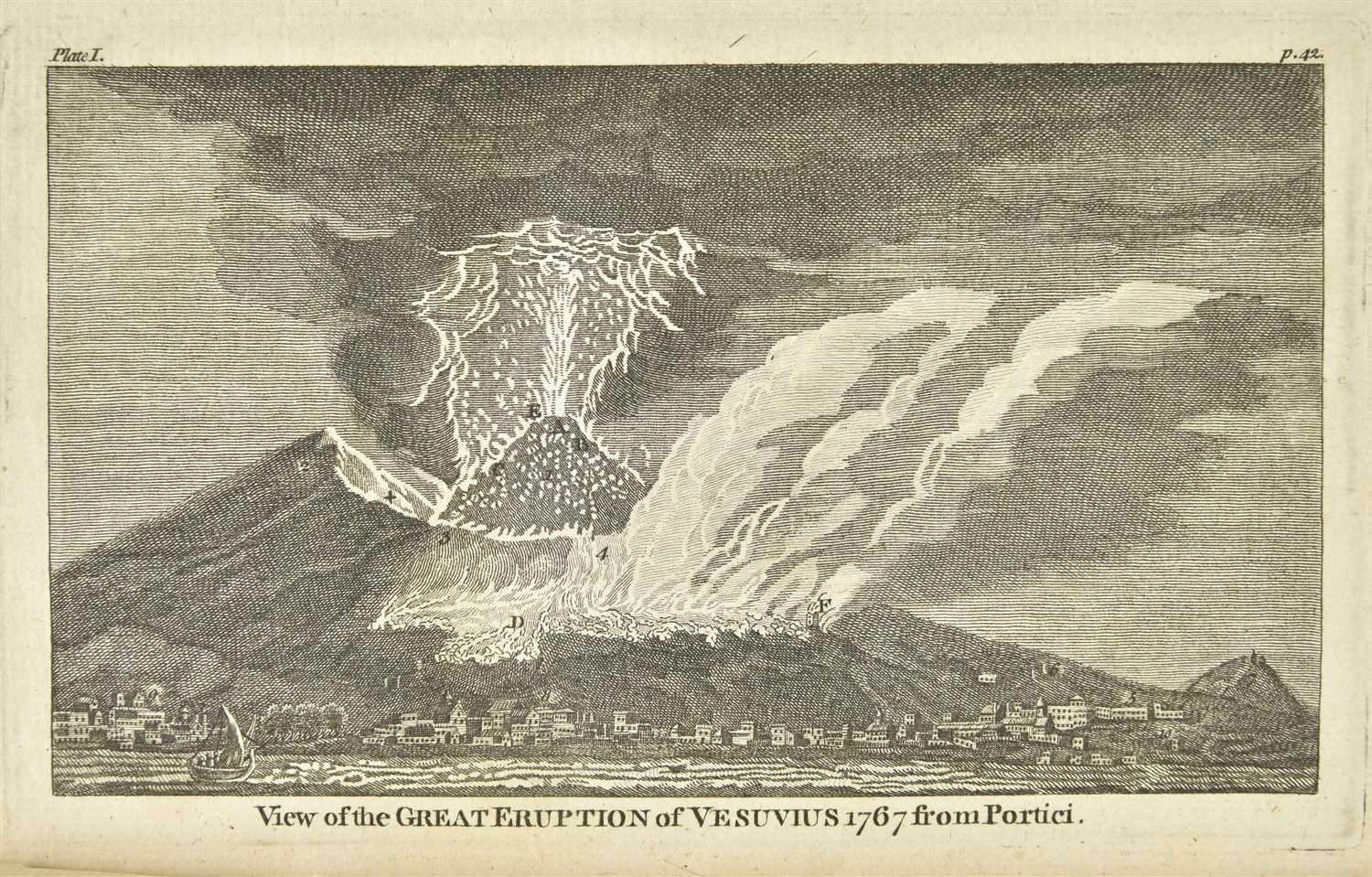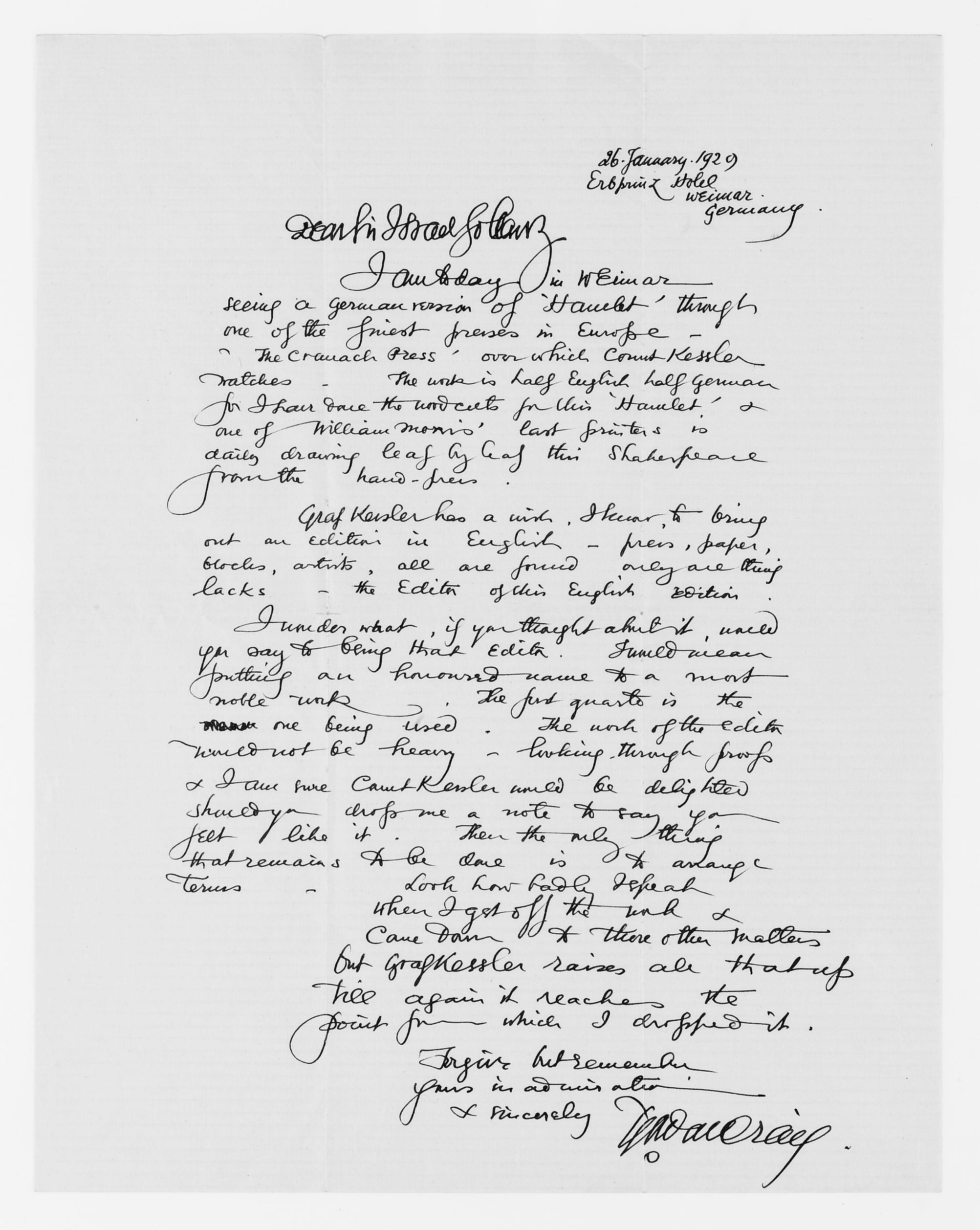Sir William Hamilton
Series of five autograph letters signed, to his nephew Charles Greville
written over a period of twenty years, discussing subjects including Emma Hamilton's imminent arrival in Naples ("…The prospect of possessing so delightful an object under my roof soon certainly causes in me some pleasing sensations…"), diplomatic affairs, the royal court in exile in Sicily following the Jacobin revolution in Naples (seeing "a very good prospect of Ld. Nelson's carrying back their Sicilian Majesties to Naples in the vanguard of placing them again on that throne"), the counter-revolution that followed ("...Lord Nelson has secured all the chiefs of the Jacobine nobility & their party, which wou'd otherwise have escaped the hand of justice..."), and Emma's influence with the Queen ("...[The Queen] has [...] no female friend but her, & Emma has been of infinite use in our late very critical business..."), as well as his collections of antiquities, the arrival in Naples of the botanist John Graeffer, a tour of Puglia, and other subjects, altogether 20 pages, folio and 4to, Naples, Palermo, and HMS Foudroyant, 3 August 1779, 25 April 1786, 26 May 1789, 8 April 1799, and 14 July 1799, one letter incomplete (3 August 1779), some staining and minor tears
"...Emma often asks me do you love me?..."
HIGHLY REVEALING LETTERS BY SIR WILLIAM HAMILTON TO HIS NEPHEW, HEIR, AND PREVIOUS LOVER OF EMMA HAMILTON. Sir William Hamilton had first met Emma Hart, as she was then known, when she was Greville's mistress living at his home in London in 1783. Hamilton was charmed by her and when Greville decided he needed to regularise his life so he could catch a wealthy wife, the two men agreed that Emma should be sent to Naples. Hamilton probably agreed to make Greville his heir in return for his glamorous mistress. In April 1786 Hamilton writes to Greville in anticipation of Emma's arrival, promising to "comfort her for the loss of you" although he knows he will "have at times many tears to wipe from those charming eyes". Emma had not been told of these arrangements, and only discovered that her visit to Italy was more than a holiday after her arrival. She was, however, quick to adapt to circumstances. In 1789 Hamilton writes to Greville saying that "hitherto her behaviour is irreproachable" and ponders a settlement on both Emma Hamilton and her mother, who had accompanied her to Naples, given the likelihood of him predeceasing her ("...the difference of 57 & 22 may produce events..."). Two years later Sir William made a much deeper commitment to Emma by marrying her. The final letters contain extensive reference to Nelson, whose appearance in Naples changed his relationship with Emma once again. We get hints of this when Hamilton writes from Palermo in April 1799 of his exhaustion and wish to return home, when he admits that departure is currently impossible as Nelson has come to rely deeply on him (meaning, of course, above all his wife) and "is very desirous of my staying with him a little longer".
LITERATURE:Morrison, The Hamilton and Nelson Papers (1893-94), nos. 149, 177, 381, 405
PROVENANCE:Alfred Morrison; Edwin Wolf II; Christie's, London, 20 June 1990, lot 258 (part lot)
Sir William Hamilton
Series of five autograph letters signed, to his nephew Charles Greville
written over a period of twenty years, discussing subjects including Emma Hamilton's imminent arrival in Naples ("…The prospect of possessing so delightful an object under my roof soon certainly causes in me some pleasing sensations…"), diplomatic affairs, the royal court in exile in Sicily following the Jacobin revolution in Naples (seeing "a very good prospect of Ld. Nelson's carrying back their Sicilian Majesties to Naples in the vanguard of placing them again on that throne"), the counter-revolution that followed ("...Lord Nelson has secured all the chiefs of the Jacobine nobility & their party, which wou'd otherwise have escaped the hand of justice..."), and Emma's influence with the Queen ("...[The Queen] has [...] no female friend but her, & Emma has been of infinite use in our late very critical business..."), as well as his collections of antiquities, the arrival in Naples of the botanist John Graeffer, a tour of Puglia, and other subjects, altogether 20 pages, folio and 4to, Naples, Palermo, and HMS Foudroyant, 3 August 1779, 25 April 1786, 26 May 1789, 8 April 1799, and 14 July 1799, one letter incomplete (3 August 1779), some staining and minor tears
"...Emma often asks me do you love me?..."
HIGHLY REVEALING LETTERS BY SIR WILLIAM HAMILTON TO HIS NEPHEW, HEIR, AND PREVIOUS LOVER OF EMMA HAMILTON. Sir William Hamilton had first met Emma Hart, as she was then known, when she was Greville's mistress living at his home in London in 1783. Hamilton was charmed by her and when Greville decided he needed to regularise his life so he could catch a wealthy wife, the two men agreed that Emma should be sent to Naples. Hamilton probably agreed to make Greville his heir in return for his glamorous mistress. In April 1786 Hamilton writes to Greville in anticipation of Emma's arrival, promising to "comfort her for the loss of you" although he knows he will "have at times many tears to wipe from those charming eyes". Emma had not been told of these arrangements, and only discovered that her visit to Italy was more than a holiday after her arrival. She was, however, quick to adapt to circumstances. In 1789 Hamilton writes to Greville saying that "hitherto her behaviour is irreproachable" and ponders a settlement on both Emma Hamilton and her mother, who had accompanied her to Naples, given the likelihood of him predeceasing her ("...the difference of 57 & 22 may produce events..."). Two years later Sir William made a much deeper commitment to Emma by marrying her. The final letters contain extensive reference to Nelson, whose appearance in Naples changed his relationship with Emma once again. We get hints of this when Hamilton writes from Palermo in April 1799 of his exhaustion and wish to return home, when he admits that departure is currently impossible as Nelson has come to rely deeply on him (meaning, of course, above all his wife) and "is very desirous of my staying with him a little longer".
LITERATURE:Morrison, The Hamilton and Nelson Papers (1893-94), nos. 149, 177, 381, 405
PROVENANCE:Alfred Morrison; Edwin Wolf II; Christie's, London, 20 June 1990, lot 258 (part lot)















Testen Sie LotSearch und seine Premium-Features 7 Tage - ohne Kosten!
Lassen Sie sich automatisch über neue Objekte in kommenden Auktionen benachrichtigen.
Suchauftrag anlegen